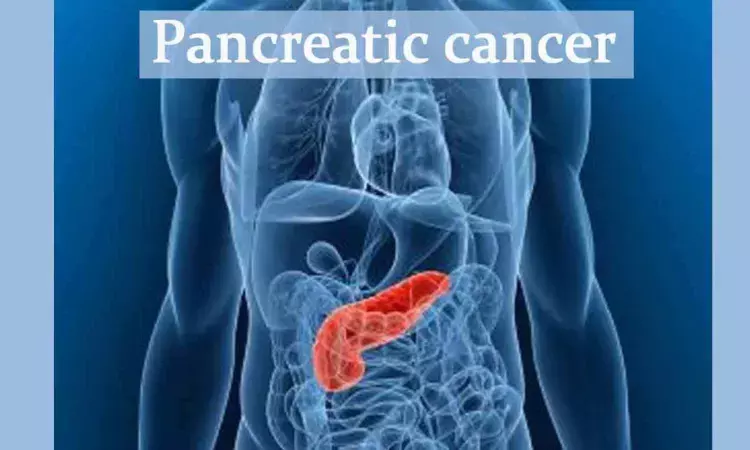- Home
- Medical news & Guidelines
- Anesthesiology
- Cardiology and CTVS
- Critical Care
- Dentistry
- Dermatology
- Diabetes and Endocrinology
- ENT
- Gastroenterology
- Medicine
- Nephrology
- Neurology
- Obstretics-Gynaecology
- Oncology
- Ophthalmology
- Orthopaedics
- Pediatrics-Neonatology
- Psychiatry
- Pulmonology
- Radiology
- Surgery
- Urology
- Laboratory Medicine
- Diet
- Nursing
- Paramedical
- Physiotherapy
- Health news
- Fact Check
- Bone Health Fact Check
- Brain Health Fact Check
- Cancer Related Fact Check
- Child Care Fact Check
- Dental and oral health fact check
- Diabetes and metabolic health fact check
- Diet and Nutrition Fact Check
- Eye and ENT Care Fact Check
- Fitness fact check
- Gut health fact check
- Heart health fact check
- Kidney health fact check
- Medical education fact check
- Men's health fact check
- Respiratory fact check
- Skin and hair care fact check
- Vaccine and Immunization fact check
- Women's health fact check
- AYUSH
- State News
- Andaman and Nicobar Islands
- Andhra Pradesh
- Arunachal Pradesh
- Assam
- Bihar
- Chandigarh
- Chattisgarh
- Dadra and Nagar Haveli
- Daman and Diu
- Delhi
- Goa
- Gujarat
- Haryana
- Himachal Pradesh
- Jammu & Kashmir
- Jharkhand
- Karnataka
- Kerala
- Ladakh
- Lakshadweep
- Madhya Pradesh
- Maharashtra
- Manipur
- Meghalaya
- Mizoram
- Nagaland
- Odisha
- Puducherry
- Punjab
- Rajasthan
- Sikkim
- Tamil Nadu
- Telangana
- Tripura
- Uttar Pradesh
- Uttrakhand
- West Bengal
- Medical Education
- Industry
No risk of pancreatic cancer risk among diabetes patients receiving GLP-1RAs: JAMA

Raised concerns suggest that GLP-1RA (glucagon-like peptide-1 receptor agonists), could potentially increase the risk of developing pancreatic cancer.
An Original Investigation on Pharmacy and Clinical Pharmacology published in JAMA Network Open concluded that In type 2 diabetes patients using GLP-1RA medication, there was no evidence supporting increased pancreatic cancer risk after seven years. However, continued monitoring beyond this period is still necessary.
In this study, adult patients with type 2 diabetes insured by Clalit Healthcare Services in Israel were followed from 2009 to 2017. The exposure was treatment with GLP-1RA compared to basal insulin.
In a Cox model, pancreatic cancer incidence was compared based on weighted cumulative exposure to GLP-1RA and basal insulin, adjusting for confounding variables with a time origin at two years after diabetes diagnosis. Sensitivity analyses were conducted using propensity score-matched and prevalent new-user designs, emphasising results from the fifth to seventh year after medication.
The results of this study are:
· During a cumulative follow-up of 3 290 439 person-years of 543 595 adults with a mean age of 59.9 years with incident diabetes, 1665 patients received pancreatic cancer diagnoses.
· 33 377 patients, constituting 6.1%, used GLP-1RA, and 106 849, constituting 19.7%, used basal insulin.
· The estimated hazard ratio (HR) for pancreatic cancer associated with incremental use of 1 defined daily dose per day of GLP-1RA in comparison to basal insulin in the fifth to seventh year previously was 0.50.
· The HR for new-user and prevalent new-user designs from the fifth year onwards after initiation of GLP-1RA vs basal insulin of 0.52 and 0.75, respectively.
Study strengths include the inclusion of a high-quality Clalit database and the high validity of the findings.
Our study did not show an increased risk of pancreatic cancer with the use of GLP-1RA in a cohort of over 500,000 adults with diabetes, they said.
Reference:
Dankner R et al. Glucagon-Like Peptide-1 Receptor Agonists and Pancreatic Cancer Risk in Patients With Type 2 Diabetes. JAMA Netw Open. 2024;7(1):e2350408. doi:10.1001/jamanetworkopen.2023.50408
BDS, MDS in Periodontics and Implantology
Dr. Aditi Yadav is a BDS, MDS in Periodontics and Implantology. She has a clinical experience of 5 years as a laser dental surgeon. She also has a Diploma in clinical research and pharmacovigilance and is a Certified data scientist. She is currently working as a content developer in e-health services. Dr. Yadav has a keen interest in Medical Journalism and is actively involved in Medical Research writing.
Dr Kamal Kant Kohli-MBBS, DTCD- a chest specialist with more than 30 years of practice and a flair for writing clinical articles, Dr Kamal Kant Kohli joined Medical Dialogues as a Chief Editor of Medical News. Besides writing articles, as an editor, he proofreads and verifies all the medical content published on Medical Dialogues including those coming from journals, studies,medical conferences,guidelines etc. Email: drkohli@medicaldialogues.in. Contact no. 011-43720751


